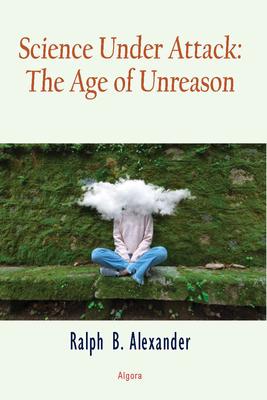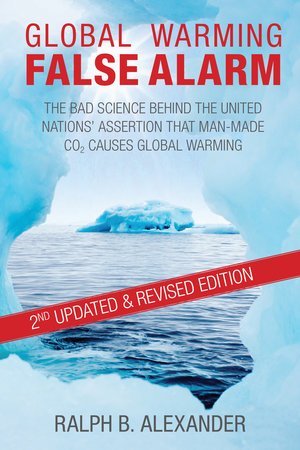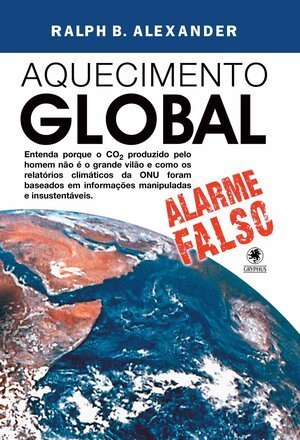How Science Is Being Misused in the Coronavirus Pandemic
/Amidst the hysteria over the coronavirus pandemic, politicians constantly assure us that their COVID-19 policy decisions are founded on science. “Following the science” has become the mantra of national and local officials alike.
But the reality is that the various edicts and lockdown measures are based as much on political considerations as science.
One of the hallmarks of science is empirical evidence: true science depends on accumulated observations, not on models or anecdotal data. My previous post discussed the shortcomings of coronavirus models, which rely on assumptions about unknowns such as contagiousness and virus incubation period, and whose only observational data is from past flu epidemics or the current pandemic that the models are attempting to simulate.
Many governments thought they were being informed by science in employing models to forecast the epidemic’s course. But, as leaders discovered in places like Italy and New York where the healthcare system was rapidly overwhelmed, the models were of little use in predicting how many ventilators or how much other equipment they would need. It was their own on-the-spot observations and political experience, not science, that led the way.
Science is not a fountain of wisdom. As a UK sociologist remarks: “Scientists can provide evidence, but acting on that evidence requires political will.” Unfortunately, science can be subverted by the political process, politicians all too often choosing only the evidence that bolsters their existing beliefs. Because politics is more visceral than rational, the evidence and logic intrinsic to science rarely play a big role in political debate.
An example of how politics has trampled science in the coronavirus pandemic is the advice given by the UK government to its citizens on self-isolation (self-quarantine in the U.S.) for those with symptoms of COVID-19.
The UK NHS (National Health Service) says seven days after becoming sick is adequate self-isolation. Yet the WHO (World Health Organization), along with medical experts in many countries, recommends a self-quarantine period of 14 days, based on the observation that the incubation period after exposure to the virus ranges from 1 to 14 days. While scientists can and frequently do disagree, the difference between the NHS and WHO guidelines is purely the result of political interference with science.
Another area where science is being misused is antibody testing.
There’s been much fanfare about the possible use of antibody testing to determine whether someone who has recovered from COVID-19 is immune from reinfection by the virus, and can therefore circulate safely in society. That’s true for many other viruses, but hasn’t yet been established for the coronavirus. And if antibodies do confer protection against reinfection, it’s unknown how long the protection lasts – weeks, months or years.
Compounding these uncertainties is the unreliability of many currently available antibody tests, and the finding that some recovered individuals, as determined by an antibody test, still test positive for the coronavirus – meaning they could still possibly infect others. Recent research suggests these are false positives, arising from harmless fragments of the virus left in the body. However, until there’s evidence to resolve such questions, it’s a mistake for any politician or official to claim that science supports their policy position on antibody testing.
A third example of misuse of science during the pandemic is the debate over prescribing the malaria drug hydroxychloroquine as an early-stage treatment for COVID-19 patients.
It’s not unusual in medicine to prescribe a drug, originally developed to treat a particular illness, as an off-label remedy for another condition. Hydroxychloroquine has for many years been considered a safe and effective treatment for malaria, lupus and rheumatoid arthritis. At the beginning of the coronavirus pandemic, the drug was used successfully to treat COVID-19 in China, France and other countries.
But the use of hydroxychloroquine to treat coronavirus patients in the U.S. has been controversial. President Donald Trump, who took a course of the medication as a preventative measure and touted its potential benefits for sick patients, has been chastised by political opponents for his endorsement of the treatment. Several studies have appeared to show that the drug, not yet officially approved by the FDA (Food and Drug Administration), can cause serious heart problems. One of these studies has, however, been retracted because of doubts over the veracity of the data.
Nevertheless, what’s important about hydroxychloroquine from a scientific viewpoint is that all the studies so far have been epidemiological. As is well known, an epidemiological study can only show a correlation between the drug and certain outcomes, not a clear cause and effect. Epidemiological studies are notoriously misleading, as found in numerous nutritional studies. Delineation of cause and effect requires a clinical trial – a randomized controlled trial, in which the study population is divided randomly into two identical groups, with intervention in only one group and the other group used as a control. So far, no clinical trials of hydroxychloroquine have been completed.
Although science is a powerful tool for understanding the world around us, it has its limitations. It should not be used as an authority in policy making unless the science is firmly grounded in observational evidence.
Next: Absurd Attempt to Link Climate Change to Cancer Contradicted by Another Medical Study





